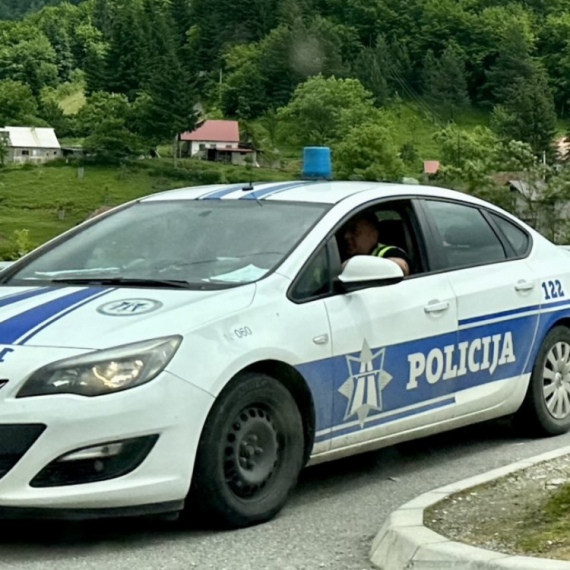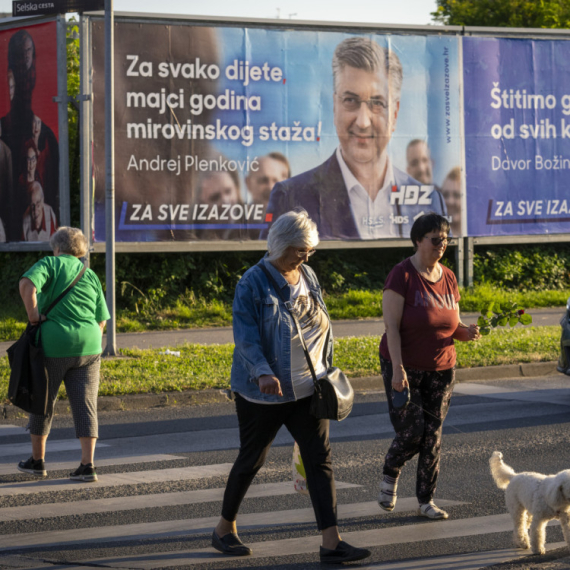Galbraith: Op Storm no ethnic cleansing
Former U.S. Ambassador to Croatia Peter Galbraith yesterday started his testimony in the Gotovina et al. trial at the Hague Tribunal.
Tuesday, 24.06.2008.
18:20

Former U.S. Ambassador to Croatia Peter Galbraith yesterday started his testimony in the Gotovina et al. trial at the Hague Tribunal. Galbraith is appearing as a prosecution witness in the UN war crimes court's case against Ante Gotovina, Ivan Cermak and Mladeni Markac, former Croatian generals charged with war crimes against ethnic Serbs during the 1995 Operation Storm. Galbraith: Op Storm no ethnic cleansing In his evidence he said that former Croatian President Franjo Tudjman believed that all countries, including Croatia, had to be ethnically homogenous, seeing Serbs as a threat to this ideal. Galbraith then addressed one of his previous testimonies, where he said the expulsion of some 250,000 Croatian Serbs did not qualify for ethnic cleansing, "although there had been crimes, committed either on the orders or with the tacit approval of the Croatian leadership, in the presence and with the participation of the military". Galbraith served as the U.S. ambassador to Croatia for four and a half years, from mid-1993 to early 1998. In his evidence he spoke of his contacts with Croatian officials at the time, primarily with Tudjman. Tudjman is the first on the list of participants in the joint criminal enterprise aimed at permanent removal of Serb population from the Krajina territory; the three accused also feature on the list in the indictment. Galbraith, who testified on Monday in the presence of a U.S. government representative, said that he and other American officials had information months before Operation Storm that there would be a military attack on the Serb Krajina. They "showed understanding for operations the Croatian Army launched in the Cazin Krajina and Croatian Krajina, especially in light of the massacre in Srebrenica in July 1995 and the Bosnian Serb army attack on Bihac". But the U.S. never green-lighted the operation, he contended. However, since the U.S. administration knew the assault might be launched, "it expressly warned the Croatian authorities and president Tudjman of their obligation to protect the Serb civilians and prisoners of war. The atrocities like those committed in the Medak Pocket in 1993 were not to be repeated". In the first days after the arrival of the Croatian Army in Knin, Galbraith recounted, the reports of the U.S. embassy personnel indicated there were widespread killings of Serb civilians and destruction of their houses, "thus confirming that the situation in the field was exactly what the U.S. administration wanted to prevent". In Galbraith’s opinion, this happened "on the orders or with the tacit approval of the Croatian leadership, in the presence and with the participation of the military". Although the prosecution indicted the three for deportation and forcible transfer of the Serbs, its witness, Galbraith, does not see Operation Storm as ethnic cleansing, mainly "because most of the population had already fled when the Croatian army and police arrived" "You cannot ethnically cleanse somebody who is no longer there, although it doesn’t mean that the Croatian forces would not have done it if the Serbs had remained there," he told the court. In his view, the Serb Republic of Krajina (RSK) authorities are responsible for the Serbs’ departure "because they had urged the population to leave". However, then Croatian Defense Minister Gojko Susak "admitted to Galbraith that the Croatian authorities engaged in psychological warfare that partly contributed to the exodus". When the Serbs left Krajina, the Croatian authorities did everything to prevent them from returning, issuing a decree to confiscate the property of all those who failed to return within thirty days. Furthermore, their houses were destroyed and their return obstructed in various ways. According to Galbraith, this fit Tudjman’s idea of an ethnically homogenous Croatia. Whenever they met, the president would emphasize that every country should be ethnically homogenous, adding that local Serbs posed a threat to the homogeneity of the Croatian state. "He was not ashamed of his views and I wondered how he could imagine that an American would accept his reasoning," Galbraith said, noting that the Croatian president "spoke favorably of the so-called humane transfer of population". "Tudjman’s attitude towards Muslims was racist and he advocated the division of Bosnia which would lead to the creation of a Greater Croatia," Galbraith concluded. Galbraith has so far given evidence before the Tribunal about his ambassadorship in Croatia at the trial of Slobodan Milosevic, that of Milan Martc, former RSK president and of Jadranko Prlic and five other Bosnian Croat former officials of the so-called Herceg-Bosna.
Galbraith: Op Storm no ethnic cleansing
In his evidence he said that former Croatian President Franjo Tuđman believed that all countries, including Croatia, had to be ethnically homogenous, seeing Serbs as a threat to this ideal.Galbraith then addressed one of his previous testimonies, where he said the expulsion of some 250,000 Croatian Serbs did not qualify for ethnic cleansing, "although there had been crimes, committed either on the orders or with the tacit approval of the Croatian leadership, in the presence and with the participation of the military".
Galbraith served as the U.S. ambassador to Croatia for four and a half years, from mid-1993 to early 1998. In his evidence he spoke of his contacts with Croatian officials at the time, primarily with Tuđman.
Tuđman is the first on the list of participants in the joint criminal enterprise aimed at permanent removal of Serb population from the Krajina territory; the three accused also feature on the list in the indictment.
Galbraith, who testified on Monday in the presence of a U.S. government representative, said that he and other American officials had information months before Operation Storm that there would be a military attack on the Serb Krajina.
They "showed understanding for operations the Croatian Army launched in the Cazin Krajina and Croatian Krajina, especially in light of the massacre in Srebrenica in July 1995 and the Bosnian Serb army attack on Bihać".
But the U.S. never green-lighted the operation, he contended. However, since the U.S. administration knew the assault might be launched, "it expressly warned the Croatian authorities and president Tuđman of their obligation to protect the Serb civilians and prisoners of war. The atrocities like those committed in the Medak Pocket in 1993 were not to be repeated".
In the first days after the arrival of the Croatian Army in Knin, Galbraith recounted, the reports of the U.S. embassy personnel indicated there were widespread killings of Serb civilians and destruction of their houses, "thus confirming that the situation in the field was exactly what the U.S. administration wanted to prevent".
In Galbraith’s opinion, this happened "on the orders or with the tacit approval of the Croatian leadership, in the presence and with the participation of the military".
Although the prosecution indicted the three for deportation and forcible transfer of the Serbs, its witness, Galbraith, does not see Operation Storm as ethnic cleansing, mainly "because most of the population had already fled when the Croatian army and police arrived"
"You cannot ethnically cleanse somebody who is no longer there, although it doesn’t mean that the Croatian forces would not have done it if the Serbs had remained there," he told the court.
In his view, the Serb Republic of Krajina (RSK) authorities are responsible for the Serbs’ departure "because they had urged the population to leave".
However, then Croatian Defense Minister Gojko Šušak "admitted to Galbraith that the Croatian authorities engaged in psychological warfare that partly contributed to the exodus".
When the Serbs left Krajina, the Croatian authorities did everything to prevent them from returning, issuing a decree to confiscate the property of all those who failed to return within thirty days.
Furthermore, their houses were destroyed and their return obstructed in various ways. According to Galbraith, this fit Tuđman’s idea of an ethnically homogenous Croatia.
Whenever they met, the president would emphasize that every country should be ethnically homogenous, adding that local Serbs posed a threat to the homogeneity of the Croatian state.
"He was not ashamed of his views and I wondered how he could imagine that an American would accept his reasoning," Galbraith said, noting that the Croatian president "spoke favorably of the so-called humane transfer of population".
"Tuđman’s attitude towards Muslims was racist and he advocated the division of Bosnia which would lead to the creation of a Greater Croatia," Galbraith concluded.
Galbraith has so far given evidence before the Tribunal about his ambassadorship in Croatia at the trial of Slobodan Milošević, that of Milan Martć, former RSK president and of Jadranko Prlić and five other Bosnian Croat former officials of the so-called Herceg-Bosna.









































Komentari 5
Pogledaj komentare